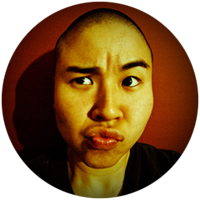I was just staring into space in the middle of the night, unable to sleep, and it hit me that it’s been ten years— It’s my 10th anniversary for a lot of things: it’s my tenth anniversary of Juri Ueno~~~ and Last Friends turned 10 this year! It’s also ten years since the Beijing Olympics, ten years since Beijing, Beijing! Wo Ai Beijing; it’s been ten years since BiBi, ten years of YAM Magazine, and ten-mother-freaking-years since I became a fan of Yu Aoi [1][2][3][4][5]. It didn’t come in this order, but you get the idea.
May 16th is the date. Remember that. This should’ve been posted that day, but I’m way to giddy to wait. It’s taken me a long time to sit down and look back at years of archives to update this entry, but I suppose it still beats trying to figure out how to write a comprehensive Wikipedia entry.
Yu-chan and I, we’ve had our ups and downs, but I’ve always tried to stay as loyal as possible. LOL I may not stalk her tags online 24/7 (all my Japanese sources in English are rubbish now) and my Japanese skills are in the gutter, but I’ve managed to remain the biggest English/Spanish-speaking Yu Aoi fan in this side of the hemisphere (if not the world, xD). It’s been a good ride, Yu-chan. I’m looking forward to all the catching-up of all your latest movies. Here’s to another decade with Yu!
Cheap Yu-puns intended~
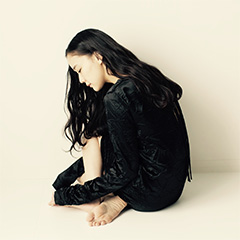
Aoi Yu 蒼井優 (born Natsui Yu 夏井優 August 17, 1985) is a Japanese actress and model from Kasuga, Fukuoka Prefecture, Japan. She made her film debut as Shiori Tsuda in Shunji Iwai’s 2001 film All About Lily Chou Chou. She became widely known for playing Tetsuko Arisugawa in Hana & Alice (2004) – also directed by Shunji Iwai, as well as Kimiko Tanikawa in the hula-dancing film Hula Girls, and Hagu in the 2006 live action adaptation of the popular Honey & Clover manga series.
In 2009, Aoi was named Rookie of the Year in the field of Films in Media and Fine Arts by The Ministry of Education, Culture, Sports, Science and Technology of Japan.
After several nominations in the Supporting Acting category at numerous film awards throughout her career, she was named Best Actress at the 41st Japanese Academy (日本アカデミー賞), presented on March 3rd 2018 [1], for her role on Birds Without Names.
- Career
- Photobook + Book Releases
- Notable Magazine Shoots + Covers
- Single Promotion + MV Appearance
- Trivia
- Other Facts
Career
Yu Aoi set herself on the path to acting when she was cast as Polly in the 1999 rendition of Annie, followed by her appearance as a regular on TV Tokyo’s Oha SUTA (The Super Kids Station) [1] in 2000. A year later, she finally made her silver screen debut in Shunji Iwai‘s All About Lily Chou Chou playing Shiori Tsuda alongside Hayato Ichihara, Shugo Oshinari, Miwako Ichikawa, and Ayumi Ito. Aoi would then work in Ao to Shiro de Mizuiro and Gaichu (Harmful Insect) with actress Aoi Miyazaki.
With her first roles on the small and big screen came commercial deals and endorsements for Sony, Yamaha, DoCoMo, Toshiba and Coca Cola.
In 2003, commemorating the 30th anniversary of Kit Kat in Japan, Shunji Iwai shot a series of short films starring Yu Aoi and Anne Suzuki, which was eventually expanded into the feature film called Hana & Alice, a film that earned Aoi the Best Actress award at the Japanese Professional Movie Award.
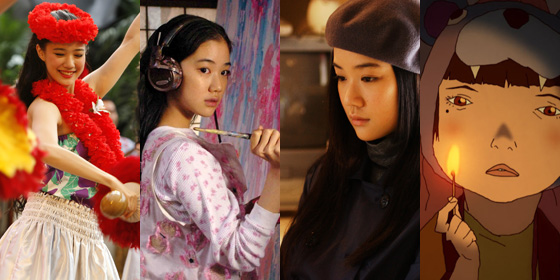
In 2005, Aoi played her first lead on the big screen in Letters from Nirai Kanai, which was sold in Korea with the alternate title of Aoi Yu’s Letter due to her popularity in the country. She has had supporting roles in the Miki Satoshi film Turtles Swim Faster than Expected starring Juri Ueno, and, Yamato with Shido Nakamura and Kenichi Matsuyama; the latter would earn her one of her double-nomination as Best Supporting Actress at the 2007 Japanese Academy Award. She won against herself for her work as Kimiko Tanikawa in the Japanese hit Hula Girls, which was sent to the Academy Awards as the Japanese official selection that year.
To this date, her role as the hula dancing girl from small town Iwaki remains her most successful role yet, earning her a dozen awards as Best Actress and Best Supporting Actress, alongside her other smaller roles that year as Hagu in Honey & Clover, and Kana Sato in the Shunji-Iwai-produced and Nirai-Kanai-directed Rainbow Song. Aoi also lent her voice to play Shiro in the animated film Tekkonkinkreet, the adaptation to the Taiyo Matsumoto manga, Black and White, directed by Michael Arias.
During these years, she made commercials for Aeon, Nintendo, Canon, the Japan Racing Association (JRA), Shiseido Cosmetics, Shueisha Publishing, Kirin Beverage and signed on to endorse DoCoMo with stars like Anna Tsuchiya, Kazue Fukiishi, Keiko Kitagawa, Tomoya Nagase, Satoshi Tsumabuki, Asano Tadanobu, and Eita. Moreover, Aoi released two successful photobooks with Yoko Takahashi as photographer, and distributed by Rockin’ On, Travel Sand (2005) and Dandelion (2007). Add to that two interviews with NHK’s Top Runner in 2005, and TBS’ Jounetsu (Passion) interview in 2006, which was translated into Korean and Chinese.
Yu Aoi spend some time on the small screen during those years. First, on the 2005 Rakugo-related drama Tiger & Dragon, written by Kankuro Kudo, for which she starred as Risa. And finally she joined the cast of Dr. Koto’s Clinic, starting its second series in 2006.
2007 proved to be a prolific year for her as she participated in the live action adaptation of the manga series Mushishi alongside Joe Odagiri, as well as WOWOW’s Don’t Laugh at my Romance, Welcome to the Quiet Room with Yuki Uchida, and going back to the stage to play Desdemona in a rendition of Shakespeare’s Othello. For these last two, Aoi showed to be moving closer to a more thespian career path by even losing 7Kg. to play Miki, an eating disorder patient.
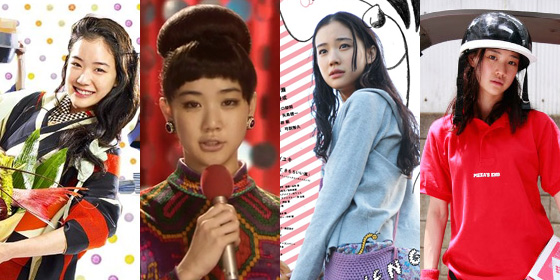
Aoi began 2008 with the release of Don’t Laugh at my Romance, which would earn her a nomination as Best Supporting Actress at the Asian Film Awards in 2009. WOWOW would signed her for the experimental drama Camouflage (aka. Aoi Yu x 4 Lies), in which Yu Aoi would collaborate with four different directors exploring the theme of lies. The series lasted for 12 episodes, and included work with Ryo Kase, Yoichi Nukumizu, Shoko Ikezu, Nobuhiro Yamashita and Yuki Tanada.
A couple of months later, NTV would sign Aoi to play her first TV leading role as Handa Sen in the live action adaptation of Kikuchi Shota’s manga series, Osen, which aired until the end of June 2008 with ten episodes, which remains Aoi’s only lead role in a mainstream drama.
Next up, Aoi released One Million Yen Girl written and directed by Camouflage director Yuki Tanada, once again released by WOWOW. Her second leading film role since Nirai Kanai in 2005, and proved to be a wise career choice by cementing her as a more serious actress. However, she didn’t forget her supporting roles, as she briefly participated in the Japanese World-War-II-jury-themed film Best Wishes for Tomorrow, as well as the international Tokyo! – a three-short-film collection by Michel Gondry, Leo Carax and Bong Joon-Ho, and directed by the latter.
During the year, she managed to release two photo essays, one titled Kaiten TEBURU wa Mutsukashi about her visit to Taipei, Taiwan, with All About Lily Chou Chou and Hana & Alice still-photographer Ivy Chen, in which she started to show her passion for shaved ice, referred to in Japanese as Kakigoori (Wikipedia), an interest that would lead to writing articles for the Japanese magazine Casa BRUTUS; and her second photo essay which was titled Kyou Konogoro and had photographs by Sayo Nagase.
By the end of 2008, she revealed that she had been to the Guyanas and visited the Amazon bank river alongside actor Osawa Takao for an Asahi TV adventure called The Lost World (ロストワールド), which aired on December 22nd, 2008.
In early 2009, the Ministry of Education , Culture, Sports, Science and Technology of Japan named Yu Aoi Rookie of the Year in the field of Films in Media and Fine Arts, citing her work in her film debut in All About Lily Chou Chou, until her work in One Million Yen Girl.
The year, however, proved to be a quiet one. With no television appearances, little films and work mostly focused on magazine shoots and commercials shooting. By this time, she continued promoting Kirin Beverages, cementing herself as the main image for the Kirin Mid-Afternoon Tea brand, and started promoting LG Cellphones.
Yu Aoi released Honokaa Boy, in which she appeared for five minutes, proving she didn’t mind taking small roles that would elevate the profile of a project she felt was important, and took the part of Ikechan on the film Ikechan to Boku (titled in English as Good Bye, My Secret Friend) a live action adaptation of the picture book of the same name by Rieko Saibara, a coming of age story which let her lend her voice to the imaginary friend of Yoshio, played by Arashi Fukasawa.
She also returned to the stage in the play Gakuya, which ran for a month and let Aoi act alongside Kyoko Koizumi, Nozomi Muraoka, and Eri Watanabe.
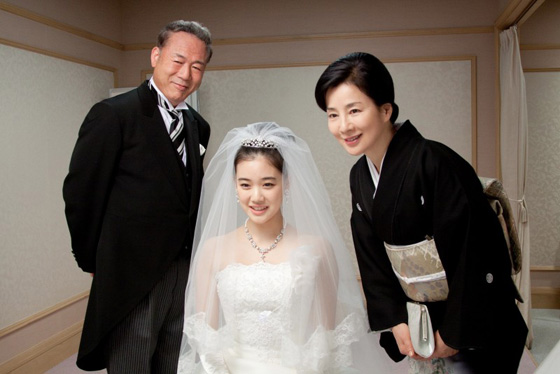
The first teaser for Yoji Yamada’s film Otouto, About her Brother, was revealed in October 2009, set for an early 2010 opening. The film was important because it let Aoi work with the renown director, who happened to be the director of The Hidden Blade, one of her favorite films.
Aoi closed the year with the Vogue Nippon Women of the Year 2009 award alongside Yukie Nakama, Aya Ueto, and Yukiko Motoya, as well as the publication of the first trailer for About her Brother, and the announcement of a guest appearance in NHK’s 49th period drama, Ryomaden, and the announcement of a starring role in period romance Raoiu, alongside Masaki Okada.
About her Brother was chosen as the film to close the 2010 Berlinale, which was received with generally favorable reviews with 11 nominations at the Japanese Academy Awards, and gave Yu her second nomination for Best Supporting Actress at the Asian Film Awards, and her third nomination for Best Supporting Actress at the Japanese Academy Awards.
Aoi opened the year with more news. The first one being that she would star in the production of FLOWERS, which got Aoi and other Tsubaki Shiseido sponsoring actresses together to celebrate the different Japanese cinematic eras telling stories about different generations of women. The second one, that she and Shunji Iwai would be back together for his English production debut of Vampire, where Aoi would play the role of a suicidal exchange student.
She followed that with the announcement of the film Yogashiten Coin de Rue, which was released on February 2011. In the meantime, Aoi did the U-Can commercials which came with a 11min. short, Sute Neko OL, and decided to publish her pop-up book Uso. alongside 3D exhibits in Shibuya and Nagoya.
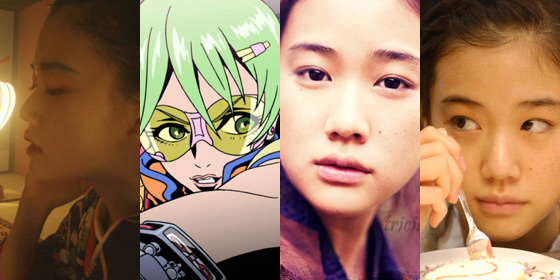
In June 2010, it was revealed that Yu Aoi would be voicing a character in the Takeshi Koike animated film Redline, alongside Kimura Takuya and Asano Tadanobu, which would open in October 2010 in Japan and selected cities in the United States. In July, she did a one-episode guest star on the TBS comedy Unubore Deka, which reunited her with the Tiger & Dragon team, including Kankuro Kudo and Tomoya Nagase. That same weekend, Aoi’s episodes for NHK’s Ryomaden started airing for a total of 13 episodes, that would almost last until the end of 2010.
On November 2010, it was announced that she would be returning to the stage alongside Satoshi Tsumabuki for a new Hideki Noda play titled To South, which opened in February 2011 until the end of March. Some of the dates of the play were cancelled or re-scheduled due to the Tohoku Earthquake that hit Japan on March 11th near the north east coast of the country, which generated a tsunami that destroyed the region, and ignited the problems at the Fukushima nuclear plant.
The Hula Girls cast, which included Aoi, donated ¥10M JPY to the city of Iwaki, which is the city where the film was shot, and the ones that suffered the most from the nuclear disaster [1]. Aoi also joined the original Hula Girls for the documentary Fukushima Hula Girls, for which she narrated, as it screened at the 2011 Tokyo Film Festival [1][2].
During these past couple of years, some of Yu Aoi’s sponsor deals came to an end, passing the baton to new members for the JRA Club Keiba commercials [1], but she has continued sponsoring for Kirin and LG Mobile Phones, and started promoting Calbee Potato Chips. She currently was named the 4th female personality in number of sponsors [1][2] in 2010, promoting 10 companies just below Aoi Miyazaki (11), Saki Aibu (12), and Aya Ueto (13). In 2011, Aoi continued promoting Calbee Potato Chips [1][2] as well as Kirin, all the while she started doing a series of commercials for JINS Air Frame glasses [1][2][3], and participated in the campaign for BEAMS’ Koiweb [1].
Shunji Iwai’s Vampire opened at Sundance to mixed reviews, but it would still do the festival rounds until its release in Japan in September 2012. In the meantime, there were reports that Yu Aoi would be releasing an experimental short by CM and MV director Komatsu Mayumi (小松真弓) titled Tamatama [1], which was shot in Ireland, as well as the confirmation that she had been cast as Takani Megumi in the live-action adaptation of the popular manga, Rurouni Kenshin[1]. Yu Aoi was set to start work with director Yoji Yamada once again in Tokyo Family, alongside Bunta Sugawara, Etsuko Ichihara, Masashiko Nishimura, Yui Natsukawa, Shigeru Muroi, Shozo Hayashiya, and Satoshi Tsumabuki. However, due to the earthquake, Yamada decided to postpone the project’s start-up date, which would have started on early April 2011.
By late 2011, it was announced that Aoi would take part on filmmaker Kiyoshi Kurosawa’s latest WOWOW drama titled Shokuzai, which would star Kyoko Koizumi, and have the presence of Chizuru Ikewaki, Eiko Koike and Sakura Ando in other prominent roles alongside Aoi [1][2].
The year closed with the release of the first teaser for Rurouni Kenshin [1].
These past couple of years, Yu Aoi’s activities were quiet, beginning January 2012 with the broadcast of Shokuzai, which would eventually last for five episodes in the span of five weeks. However, Aoi’s participation only required her to appear on the first episode, which co-starred Mirai Moriyama. In February, it was announced that Aoi would participate in the stage play Madame de Sade [1] with a run all throughout March that year. During February, she also published her 10th photobook release titled A Dream with photographs by Yoshihiko Ueda. Then, in early June, Yoji Yamada held a press conference with the cast for Tokyo Kazoku to announce that they had finally begun shooting the film after its postponement the prior year due to the Tohoku Earthquake [1].
It was in early July 2012 when Yu Aoi, after years of swirling in the romance rumor mill of the Japanese entertainment industry, announced on her blog that she was in a relationship with actor Suzuki Kosuke [1], who had also made an official statement on his own blog. A month later, by late August, the teaser for Tokyo Kazoku [1] was revealed with only 15 seconds of footage featuring Aoi’s co-star Satoshi Tsumabuki only. However, it would be the much awaited live action adaptation of Rurouni Kenshin; which would span one of the best-received anime adaptation trilogies; and Shunji Iwai’s Japanese release of Vampire that would be causing a stir when Aoi was revealed to have cut her long locks of hair [1][2], which apparently didn’t sit well with her management. Finally in September, Yu was the face for Right On’s new campaign, in which she was sporting her spanking new hair [1]. The month ended with the announcement that Aoi would participate in a Japanese remake of Hong Kong’s classic Infernal Affairs, a two-part series titled Double Face [1].
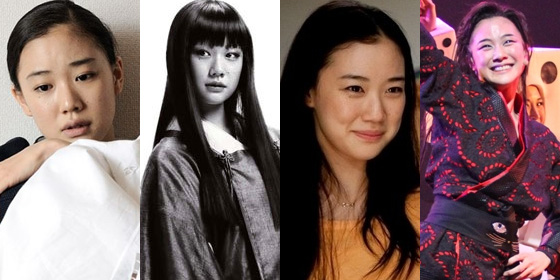
On October, it was announced that Aoi would be participating on the play Zipang Punk Goemon ROKKU III [1], with shows beginning in mid-December and running until the end of February 2013 in Tokyo and Osaka. 2012 finished with Aoi’s participation on the experimental radio drama 6 Colors[1], which she voiced alongside Oguri Shun, as well as the first trailer of Tokyo Kazoku [1] and its first advanced screening, and the publication of the Taiwanese edition of Kaiten TEBURU ha Mutsukashii titled Taiwan Girl [1].
The year 2013 was pretty uneventful, starting with the release of Tokyo Family, which would eventually earn Aoi her third Best Supporting nomination at the Asian Film Awards and her fourth Best Supporting nomination at the Japanese Academy Awards. Her activities followed with the broadcast of The Most Distant Galaxy [1] and its quick announcement and airing on February, and the announcement of Aoi’s film by Daisaku Kimura titled Haru o Seotte co-starring Kenichi Matsuyama, Etsushi Toyokawa and Sakura Ando, which would be filmed at the Tateyama mountain range between April and November, with a planned opening date by June 2014 [1]. Already by June 2013, Aoi had a notable appearance on the 8th episode of Galileo 2, opposite Masaharu Fukuyama.
As Aoi continued shooting Haru o Seotte, her 2013 activities closed in September with the release of the animated Space Pirate Captain Harlock. Our first 2014 news was when they announced the theatrical release of Aoi’s period punk musical Zipang Punk, which would open by March, followed by the release of Haru o Seotte in June, leading to the broadcast of the second season of WOWOW’s Mozu, which would in turn overlap Fuji TV’s remake of their 1966 drama, Wakamono-tachi, titled All About my Siblings (若者たち2014) where she was –once again– paired opposite Satoshi Tsumabuki. These activities would build-up Aoi’s presence in time for the release of both Rurouni Kenshin films, Kyoto Inferno and The Legend Ends, completing the successful trilogy [1][2].
The best news that year, however, had to be the announcement of Shunji Iwai’s first animated film, a prequel to Hana & Alice, simply titled The Case of Hana & Alice. Aoi also published 8740 DIARY 2011-2014, a collection of text and photos gathered between those years from different directors, screenwriters and co-stars [1].
Yu Aoi began 2015 with the Tadaima Iwaki (ただいま! いわき) campaign, to promote tourism to Iwaki after the 2011 earthquake [1]. The Case of Hana & Alice came out in February, followed by the broadcast of Dr. Rintaro in April through June, where she played a geisha with Dissociative Identity Disorder; as well as a small role in Kiyoshi Kurosawa’s Journey to the Shore, which premiered at Cannes Film Festival, and eventually opened in Japan in October.
It was confirmed that she’d be voicing a character in a Disney Channel Lilo & Stitch SP [1]. She also started doing commercials for real state developer Mitsui Fudosan (三井不動産株式会社), as part of their Tokyo 2020 campaign. In the second half of 2015, there were several announcements. First, in September, it was revealed that Aoi would star in a brand new play for Spokane’s Left Hand (スポケーンの左手), which would run through the second half of November [1]; followed by Nobuhiro Yamashita’s Over the Fence (オーバー・フェンス), an adaptation of a story in the anthology Kogane no Fuku (黄金の服) by Sato Yasushi. A month later, it was reported that Yu Aoi would be starring in a live-action adaptation of Yamauchi Mariko’s (山内 マリコ) book AZUMI HARUKO wa Yukuefumei (アズミ・ハルコは行方不明), titled Japanese Girls Never Die and directed by Daigo Matsui. Her first leading role in seven years since Yuki Tanada’s One Million Yen Girl [1].
2016 was quite a calm year, as it began with What A Wonderful Family!, another collaboration with Yoji Yamada that would span his family comedy trilogy (so far); as well as reports that Aoi would be participating in a Japanese adaptation of John Ford’s 1600s incest tragedy ‘Tis Pity She’s a Whore, in a play that would run through June [1]. 2016 would finish with the release of Over the Fence in September, the report of a yet-to-be-determined film with Giuseppe Tornatore [1], and Japanese Girls Never Die by December. The previous year would be the calm before the storm that would be 2017 for Yu Aoi fans as she began with the announcement of a movie adaptation of Mahokaru Numata’s (沼田まほかる) Kanojo ga Sono Na o Shiranai Tori-tachi (彼女がその名を知らない鳥たち) [1], which would be titled Birds Without Names; as well as the report of her role in the sport comedy drama Mix (ミックス。) [1]. She also began doing commercials for Sanko Seika (三幸製菓) products, including Yuki no Yado (雪の宿) rice crackers covered with Hokkaido cream [CM Making][1][2]; Cheese Almond crackers [CM Making][1]; and the third one which would be used in late July for Parinko (ぱりんこ) crackers [CM Making][1].
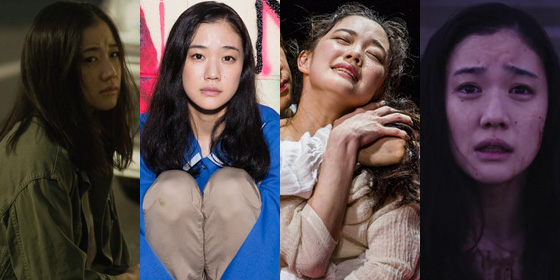
In May, the Tokyo International Film Festival announced that they’d be presenting a series to celebrate The Muses of Japanese Cinema, which included presentations of films by Sakura Ando, Hikari Mitsushima, Aoi Miyazaki and Yu Aoi [1], ahead of the release of the second entry in Yoji Yamada’s family trilogy, What a Wonderful Family! 2. Aoi’s activities continued in July with the broadcast of We’re Millennials Got a Problem? SP, the start of Hello, Detective Hedgehog, the release of the live-action adaptation of Tokyo Ghoul, as well as the revelation that she’d be starring in the play Antigone [1][2]. Already in October, Mix opened one week ahead of Birds Without Names, which would earn Aoi her first nomination for Best Actress at the Asian Film Awards (her fourth in total) and get her her first nomination and win for Best Actress at the Japanese Academy Awards. Aoi would close the year with the broadcast of NTV’s My High School Business, which she co-starred alongside Arashi member Sho Sakurai (whom she worked with in Honey & Clover) and Mikako Tabe, playing a shy high school teacher with a heart of gold.
Aoi’s 2018 began with the presentation of Antigone through the month of January in Tokyo [1] and February in Matsumoto, Kyoto, Toyohashi and Kitakyushu [1], her Best Actress win; as well as the announcement that she’d be voicing a character in the animated film Penguin Highway (ペンギン・ハイウェイ), based on Tomihiko Morimi (森見登美彦)’s novel [1]. Her activities so far includes the third installment of Yoji Yamada’s What A Wonderful Family! 3: My Wife, My Life, as well as the broadcast of TV Tokyo’s Miyamoto kara Kimi e. It was recently revealed that Aoi would be starring in the music video for Hoshikuzu Scat’s Shinjuku Chanson, written by Lily Franky, and directed by her Birds Without Names director, Shiraishi Kazuya [1].
Photobook + Book Releases
- Yu (優―蒼井優写真集) (2001)
- From Yu (From 優) (2003)
- Travel Sand (2005)
- Dandelion (2007)
- Kaiten TEBURU wa Mutsukashii (2008)
- Kyou Konogoro (2008)
- Portugirl (2009)
- Uso. (2010)
- Tamatama (2012)
- A DREAM (2012)
- 8740 DIARY 2011-2014 (2014)
Notable Magazine Shoots + Covers
- EYE SCREAM Frebruary 2007
- spoon March 2009
- So-En October 2009
- Madfory Magazine October 2011 with Korean actor Kim Soo Hyun
- MEKURU Magazine August 2015
- Watashi no Kyuushuu (私の九州) October 2016
- FRaU Magazine February 2018
Single Promotion + MV Appearance
- Every Little Thing – Many Pieces [YouTube] (2003)
- KINMOKUSEI (キンモクセイ) – Hito to KOUMORI (人とコウモリ [1]
- GOING UNDER GROUND – ハートビート – Heart Beat [1]
- HOME MADE Kazoku – 君がくれたもの (Kimi ga Kureta Mono) – What You Gave Me [1]
- Shiori – Smile (YouTube)
- Kobukuro – CALLING // Kanashii Hanabi [1][(2]
- Moumoon – Sunshine Girl [1]
- Maika – Kokoro (心) – Raiou / The Lightning Tree Main Theme
[Short Version] [Long Version] - Yu Aoi x Chatmonchy – Bus Romance [1]
- Noanowa – Have a Good Day! [1]
- Chatmonchy – Kienai Hoshi (消えない星) [Japanese Girls Never Die OST] [1] [YouTube]
- Ishizaki Huwie (石崎ひゅーい) – Flower Vase (花瓶の花, Kabin no Hana) [Japanese Girls Never Die OST] [1][YouTube]
- Hoshikuzu Scat (星屑スキャット) – Shinjuku Chanson (新宿シャンソン) dir. Shiraishi Kazuya (白石和彌)
Trivia
Yu Aoi’s 10 Favorite Films (According to a January 2008 FrAU issue)
- Like Asura (2003)
- Memories of Murder (2003)
- Ten Minutes Older (2002)
- The Hidden Blade (2004)
- White Oleander (2002)
- Yi Yi: A One and a Two (2000)
- Almost Famous (2000)
- 2:37 (2006)
- Kaza-hana (2000)
- Sway (2006)
Other Facts
- Has an older brother. [1]
- Can reproduce the sound Yoshi (from Mario Bros) makes when it jumps, with her nose.
- Dislikes chocolate fondue. [1]
- Hates hard-boiled eggs. [1]
- Loves shaved ice. [1]
- Has a shaved ice machine at home.
- She has been a regular contributor to Casa Brutus Magazine on the topic of shaved ice since 2009.
- Lost 7kg. for her role in Welcome to the Quiet Room. [1][blog msg]
- Once friends with Aoi Miyazaki and Juri Ueno [1][2].
- Was classmates with Teppei Koike (WaT), and shared the sponsorship of JRA. [1][2]
- Fan of Chatmonchy.
- Was bullied as a kid. [1]
- Is a huge ANGERME (アンジュルム) stan [1] as shown on the episode Utai Odori Kurui SP (歌い踊り狂いSP) of NTV’s UCHI no GAYA ga Sumimasen! (ウチのガヤがすみません!).
- Is now often compared with Japanese actress Haru Kuroki.
- Korean actresses Hwang Seung-Un (황승언) and Son Soo-Hyun (손수현) have been compared to her [1], as well as Korean model Jo Eun-Hee (조은희).
- Celebrated 15 years of career in 2014.
- Almost quit acting at age 23 [1].
- Likes Sumo wrestling.
- Japanese poet Shuntaro Kanikawa (谷川俊太郎) wrote a poem titled Aoi Yu (あおいゆう), included in the MEKURU issue.
- Celebrated her 30th birthday with Peter [1].
- Hung out with Japanese Girls Never Die co-star Mitsuki Takahata in photos taken by Yoko Takahashi [1].

